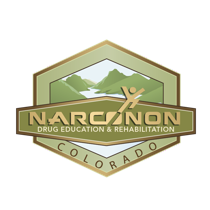5 Signs of Addiction

Regardless of all of the current distractions of COVID-19, political unrest, and weekly riots, the drug crisis is still in full swing. Even though the world’s attention has been on other issues, addiction is still a pervasive problem that hasn’t magically disappeared. Drugs are still lurking around every corner. Families need to be teaching their kids about drugs, alcohol, and the dangers and realities of addiction. Every family’s worst nightmare is receiving a knock on the door or getting a phone call letting them know something terrible has happened to their loved one. It’s currently extremely rare to come across anyone who hasn’t been negatively affected by addiction. The current rate of substance abuse is astronomical compared to 20 years ago. Almost everyone knows someone who has struggled with addiction in one form or another. Drug education is of vital importance to prevent future generations from becoming addicted and falling into the same trap.
No family needs to experience the heartbreak that comes with addiction since it’s a very preventable condition. Families need to educate themselves on drugs and addiction so they know what drugs are most commonly abused and what warning signs to look for. By doing so, they can prevent their loved one from falling down the bottomless rabbit hole.
Alterations in normal behavior or routines
The first thing to look out for are any noticeable alterations in normal behavior or daily routines. Changes in this area are often some of the first things that could indicate that something is wrong. Every person has a set of behavioral habits and routines that can be considered normal and usual. Any departure from them should be enough to cause concern. Parents generally know their children’s regular patterns, so any change should be taken very seriously.
Behavioral warning signs of addiction
- Staying out later than usual
- Not being able to account for where they’ve been or who they were with
- Spending more time isolated in their rooms
- Communicating less with the family
- Spending longer than a normal amount of time in the bathroom
- Sleeping less
- Being awake through the night
- Sleeping all day.
- Picking at their skin
- Lack of hygiene
- Noticeable weight loss or weight gain
- Squalor-like living conditions, or anything completely out of the norm for your loved one.
Socially withdrawn or decreased desire for communication
Becoming socially withdrawn and not communicating as much as they used to can also be an indicator that something isn’t right. It could mean your family member is either already in the grips of addiction or is just starting out with experimentation. Either way, look into it. When a child or young adult goes from being social, outgoing, and in really good communication with their parents to being quiet, withdrawn, and seemingly uninterested in the world around them, chances are there’s a major problem. They may not want to talk about what’s going on with them or try to persuade you that everything is okay. If your loved one used to be very family-centric and now refuses to talk about what’s actually going on, there could be a problem.
If you don’t sit down and get in communication with them, it’s possible the drug dealer at school, work, or at the street corner would be more than happy to listen to them. For a price.
Loss of interest

Losing interest in the things your family member typically enjoys can be a red flag that something is going on. If at one point, they had a lot of interest in school, extracurricular activities, hanging out with the family, working, or anything else that now seems to have taken a back-burner, take a look. Once a person’s interests drastically change or they lose interest in the things that are important to them, chances are something has gone wrong. Once a person becomes addicted to drugs, getting high is their number one priority. Getting their career going, managing their finances, or starting a family is no longer important. If a person’s interest and motivation change that much, sit down with your family member and try to find out what’s going on.
“Crisis situations”
Fake “crisis situations” are a strange phenomenon that most addicts seem to experience. Since addiction makes a person’s life completely unmanageable, they might drop out of school, get fired from jobs, and rarely have enough money to survive. When your loved one starts having these odd crisis situations followed by a story that doesn’t seem very believable, trust your gut. When an addict makes a terrible decision that majorly affects their life and they run out of money, they need an explanation in order to get more money from mom and dad.
It can sound something like this:
“You’ll never believe what happened…”
And right and that moment, you should know that 99% of what they tell you next is probably a lie. Crisis situations happen in life but they don’t happen over and over. When they do, they’re rarely these over-the-top situations that leave you scratching your head in disbelief. In the addict’s mind, if they’ve run out of money and either can’t pay their bills or need to get their fix, they need to come up with a story of why they need you to send them money. This usually results in insane stories or circumstances they’ve gotten themselves into. People who aren’t getting high don’t get robbed, mugged, have their apartment broken into twice in a month, or wind up in some weird situation that got them fired from work.
Physiological changes

One of the most noticeable signs that a person may be using drugs is drastic changes in a person’s physical appearance. We know how our loved ones look on a day-to-day basis. We know how they ordinarily present, which means we can tell when something is physically wrong.
Physical Signs of Drug Abuse
- Extreme weight gain
- Extreme weight loss
- Sunken eyes
- Changes in skin tone
- Lack of personal hygiene
Drugs can alter a person’s appearance for the worst and it’s important to not only notice this but to do something about it immediately. If a person is showing any of the above signs and symptoms of being on drugs, the best thing to do is to confront the situation. Don’t sweep it under to rug and deal with it later. Do something about it now, because later may never come.
